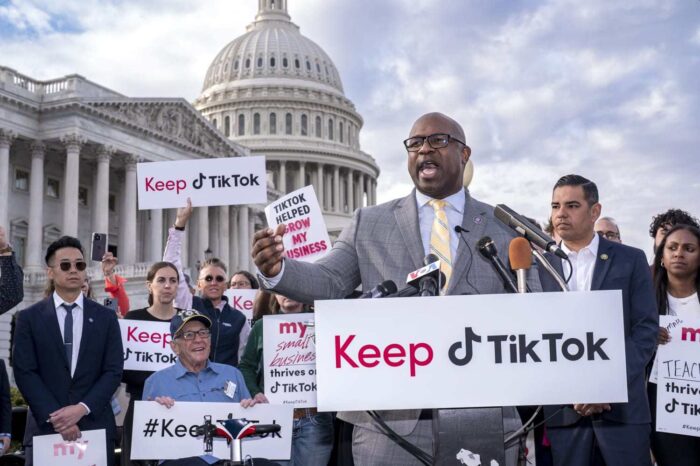Why Applying to an Accelerator Is the Best Route for Your Startup

Though interest rates have gone down slightly, ongoing market volatility means that funding for startups is still difficult. Risk-averse investors prioritize steady returns over the promise of a young company. Founders are navigating a tricky market, but as new federal dollars open up, quality accelerator programs can be the key to capitalizing on new market realities.
For several years, accelerator programs have been an integral part of the ecosystem for young businesses, particularly in the tech space. Typically spanning several months, these programs are often like mini MBAs, demanding a high level of rigor and competition among their participants. Participants are given instruction, connections, and a network on which to build and improve their young businesses.
These programs have produced big names; Y Combinator, one of the most well-known programs, counts Airbnb, DoorDash, and Coinbase among its more prestigious alumni. Meanwhile, the more recently started AngelPad program has provided an average of $14 million in funding for startups participating in its programs.
Accelerator programs can make or break a young company. In the wake of the SVB collapse, accessing funding has become more complicated; even companies with lucrative VC money have struggled, with some firms seeing as much as 60% of their portfolio investments fold.
Meanwhile, startup ventures that use accelerator programs are 23% more likely to secure adequate funding, a critical advantage in a high interest rate environment.
Alumni success comes down to two major elements: network connections and pitch training, which are essential to any reputable accelerator program. In these accelerator programs, founders are put through their paces to refine and build their business plans. Feedback that might otherwise take years to coalesce is accelerated into a few months.
It’s not for everyone, but having gone through an accelerated business development process can help founders seize key opportunities when they arise. Right now, for instance, major funding opportunities are about to open up for companies in the Green Tech space. The Greenhouse Gas Reduction Fund is a government program run through the EPA with $27 billion at its disposal aimed at fostering innovation in the green economy.
Companies will be falling over themselves to access this capital, and the ones that have done the work and training to get their businesses into the right stage will be the ones that are successful.
However, not all accelerator programs are created equal, and simply participating in an accelerator program isn’t enough to ensure success. Choosing the right program and taking advantage of what the programs offer is equally crucial. For founders considering accelerator programs, here are some key pieces of advice to keep in mind:
- Be discerning about what program you join. Taking multiple weeks away from a young company is a big ask, and founders should be smart about the program they join, treating it as an investment in themselves.
- Do your due diligence. Make sure the program is the right fit, helps you meet your business goals, and will accelerate your company’s growth.
- Alumni experience matters. When assessing which program is right for you, consider its pros—networking, access to investors, and accountability—which are all key elements that founders want to get out of their participation.
- Do the research and talk to people. Speak with those who have been through the program to see if the relationships and networks from the accelerator program are still strong. If they aren’t, it may not be worth the time.
- Don’t forget why you’re doing this. Accelerators’ entire point is to quickly move businesses along in their development, but doing so requires a founder who can succeed in this kind of environment. Accelerators can only take you so far; after the program ends, we see who can fly and who will fail.
- Understand the workload. As one of my mentees who has recently been through an accelerator program said, these programs aren’t simply about showing up to class. They’re a full-time second job. In addition to their other responsibilities, it’s a whole new line of work for founders, and simply making it through the program isn’t enough to guarantee success. The most impactful work comes after the accelerator ends, when founders are left to their own devices to build the relationships that turn into funding opportunities.
- Consider a specialized program. Silicon Valley’s “bro” culture may be the dominant ethos in tech, but that doesn’t mean it’s the right culture for everyone. Especially for women and minority founders, accelerators that specialize in their experience can provide a better sense of community and belonging, making participation more worthwhile. For founders from diverse backgrounds looking to accelerate their growth, the Wocstar & Ghetto Film School Entrepreneur Academy offers tailored support, including expert mentorship, fundraising strategies, and a strong network of peers and industry leaders to help turn business ideas into reality.
- Choose a program that fits your leadership style. Even the most elite programs aren’t worth it if you, as a founder, don’t feel comfortable bringing your whole self — vulnerabilities and all — to the training sessions. Choose an accelerator program that allows you as a leader to thrive.
Founders should use current market conditions as a cue to be strategic about their growth paths. This is the time to research and join an accelerator program that aligns with their business goals and personal needs.
Opportunity abounds for those who do the work. Choosing the right accelerator program is the start.
This article is part of our ongoing effort to support expert-driven content in the startup ecosystem. If you’re an expert or organization with valuable insights, feel free to reach out to us.
 About the Author: Gayle Jennings O’Byrne is the Founder & CEO of WOCSTAR Capital, an early-stage investment fund focused on investing in tech companies with diverse and under-represented management teams.
About the Author: Gayle Jennings O’Byrne is the Founder & CEO of WOCSTAR Capital, an early-stage investment fund focused on investing in tech companies with diverse and under-represented management teams.




